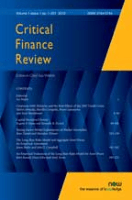
Critical Finance Review
Scope & Guideline
Elevating financial research with innovative perspectives.
Introduction
Aims and Scopes
- Asset Pricing and Market Behavior:
Research in this area explores the dynamics of asset pricing, including the impact of market structures, investor behavior, and macroeconomic factors. It often employs quantitative methodologies and empirical data to analyze patterns in stock returns and volatility. - Corporate Finance and Governance:
This scope addresses issues related to corporate decision-making, governance structures, and the implications of financial policy on firm performance. Studies often focus on the intersection of finance and regulatory environments. - Investment Strategies and Performance Evaluation:
The journal publishes work on various investment strategies, including mutual funds and hedge funds, examining their performance metrics, persistence, and market anomalies. This includes critical evaluations of traditional theories and practices. - Behavioral Finance and Investor Psychology:
Research in this domain investigates the psychological factors influencing investor behavior and market outcomes. It often critiques conventional financial theories by incorporating behavioral insights. - Risk Management and Financial Stability:
This area focuses on the assessment and management of financial risks, including systemic risks and their implications for economic stability. It highlights the importance of risk modeling and regulatory frameworks.
Trending and Emerging
- Idiosyncratic Volatility and Risk Premiums:
Recent papers are increasingly examining the relationship between idiosyncratic volatility and expected returns, suggesting a trend towards understanding how unique firm-specific risks influence broader market dynamics. - Impact of Macro-Economic Factors on Asset Pricing:
There is a growing interest in how macroeconomic variables affect asset pricing models, particularly in the context of corporate finance decisions. This trend highlights the interplay between macroeconomic conditions and financial outcomes. - Behavioral Finance Insights:
Emerging studies are leveraging behavioral finance theories to explain market anomalies and investor behavior, moving beyond traditional rational models to incorporate psychological elements. - Sustainable Finance and Corporate Social Responsibility (CSR):
The integration of CSR metrics and sustainability considerations in corporate finance is gaining traction, reflecting a broader societal shift towards responsible investing. - Cross-Market and International Finance:
Research is increasingly exploring international finance dynamics, including the effects of global events on local markets and the implications of cross-market correlations.
Declining or Waning
- Traditional Valuation Models:
Research centered on classic valuation models, such as those based on dividend discounting, has become less frequent. As empirical evidence challenges these models' predictive power, scholars are shifting towards more dynamic and complex frameworks. - Market Efficiency Hypothesis:
The foundational theories surrounding market efficiency have seen reduced emphasis, particularly as new evidence suggests more nuanced market behaviors that contradict the traditional efficient market hypothesis. - Historical Event Studies:
While still relevant, the prevalence of studies focusing solely on historical financial events (like earnings announcements) is declining. Researchers are increasingly integrating broader contextual analyses and forward-looking frameworks. - Focus on Domestic Markets:
There is a noticeable trend away from research that exclusively examines domestic markets, as globalization and cross-border financial interactions gain prominence in the literature. - Simple Performance Metrics:
The reliance on basic performance metrics for asset evaluation, such as the Sharpe ratio, is waning. The field is moving towards more sophisticated measures that account for risk and behavioral factors.
Similar Journals
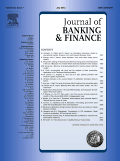
JOURNAL OF BANKING & FINANCE
Transforming Banking Practices Through Rigorous AnalysisWelcome to the Journal of Banking & Finance, a premier publication in the fields of finance and economics, expertly published by Elsevier. With its esteemed Q1 ranking in both the Economics and Econometrics and Finance categories for 2023, this journal frequently garners significant attention from researchers, professionals, and academics alike. Established in 1977, it has become a crucial resource for the latest research and advancements in banking and financial services, influencing policies and practices on a global scale. The journal's commitment to high-quality, peer-reviewed content ensures that it not only contributes to academic discourse but also drives real-world financial innovation. As part of the respected Elsevier publishing collection, the journal's rigorous standards and comprehensive analysis serve as indispensable tools for those seeking to understand and navigate the complexities of the financial landscape. Located in the Netherlands, the Journal of Banking & Finance continues to play a vital role in shaping the future of financial research through its impactful insights and research contributions.
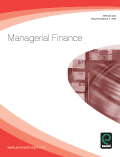
MANAGERIAL FINANCE
Exploring the Intersection of Finance and Strategy.MANAGERIAL FINANCE is a prestigious academic journal published by Emerald Group Publishing Ltd, focused on the areas of finance, management, and strategy. With an ISSN of 0307-4358 and an E-ISSN of 1758-7743, this journal has carved a niche for itself within the business and financial sectors, achieving a commendable Q2 category ranking across multiple domains, including Business, Management and Accounting, Finance, and Strategy and Management, as of 2023. The journal aims to provide a platform for insightful research and critical analysis while fostering an understanding of contemporary financial practices and theories. With its wide-ranging scope, it serves as a vital resource for researchers, professionals, and students alike, looking to stay abreast of the latest trends and challenges in managerial finance. The editorial board is committed to maintaining academic rigor, ensuring that articles published are of the highest quality and relevance to the field. By bridging the gap between theory and practice, MANAGERIAL FINANCE is an essential reference for anyone involved in financial decision-making and strategic management.
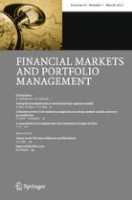
Financial Markets and Portfolio Management
Connecting Theory and Practice in Financial Markets.Financial Markets and Portfolio Management is a renowned peer-reviewed journal published by Springer, focusing on the dynamic and evolving intersections of finance, economics, and accounting. With an ISSN of 1934-4554 and an e-ISSN of 2373-8529, the journal provides a platform for innovative research on financial markets, investment strategies, and portfolio management techniques. It boasts an impactful presence in the academic community, with a Scopus ranking placing it in the 58th percentile in Finance and the 51st percentile in Accounting, underscoring its significance in both fields. Spanning coverage from 2006 to 2024, the journal offers essential insights for researchers, practitioners, and students interested in the latest developments and empirical analyses in financial practices. Although it does not offer open access options, its rigorous editorial standards ensure high-quality content accessible to library and institutional resources. The journal plays a pivotal role in advancing knowledge and fostering dialogue in an increasingly complex financial landscape.
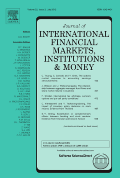
Journal of International Financial Markets Institutions & Money
Illuminating the Dynamics of Global MarketsThe Journal of International Financial Markets, Institutions & Money, published by Elsevier, serves as a leading platform for the dissemination of high-quality research in the fields of finance, economics, and econometrics. With an impressive impact factor reflected in its status as a Q1 journal in both categories for 2023, it ranks among the top journals, positioned at #47 out of 317 in Finance and #111 out of 716 in Economics. This journal offers a unique focus on the interplay between financial markets and institutions on a global scale, making it an essential resource for scholars, practitioners, and students alike. The journal welcomes innovative theoretical, empirical, and applied research, contributing to an exciting dialogue that shapes the future of international finance. For researchers looking to publish their findings, this journal is committed to rigorously engaging with contemporary financial phenomena, positioning itself as a vital cornerstone of academic and professional discourse.
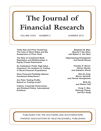
JOURNAL OF FINANCIAL RESEARCH
Unveiling Trends in Financial ResearchThe JOURNAL OF FINANCIAL RESEARCH, published by WILEY, stands as a pivotal platform for disseminating innovative research in the fields of finance and accounting since its inception in 1978. With an ISSN of 0270-2592 and an E-ISSN of 1475-6803, this journal aims to address contemporary challenges and trends within the financial research landscape. It has achieved notable recognition, being placed in the Q2 category for both Finance and Accounting in the 2023 rankings, signifying its relevance and impact within the academic community. Although it does not currently offer open access, the journal is accessible through various academic databases, catering to a diverse audience of researchers, professionals, and students keen on advancing their knowledge and understanding of financial systems and methodologies. With an evolving scope that encompasses empirical studies, theoretical frameworks, and practical applications, the JOURNAL OF FINANCIAL RESEARCH is committed to contributing valuable insights into the complexities of financial practices and policies.
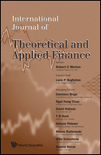
International Journal of Theoretical and Applied Finance
Empowering researchers with a platform for financial excellence.International Journal of Theoretical and Applied Finance is a distinguished publication in the field of finance, serving as a critical platform for the dissemination of innovative research and theoretical insights since its inception in 2003. Published by World Scientific Publishing Co Pte Ltd in Singapore, this journal boasts an impressive Q2 ranking in the realms of Economics, Econometrics, and Finance (miscellaneous) and a solid Q3 status in Finance for 2023. With a commitment to advancing knowledge in the complex world of theoretical frameworks and applied financial practices, it welcomes original research articles, comprehensive reviews, and case studies that explore varied facets of finance. Researchers, professionals, and students benefit from the journal's rigorous peer-review process and an ever-expanding repository of knowledge, making it an indispensable resource in the financial academic community. The journal does not currently offer open access, reflecting its selective approach to publishing high-quality content aimed at a specialized audience.

Asia-Pacific Financial Markets
Empowering Researchers to Shape Financial StrategiesAsia-Pacific Financial Markets is a distinguished academic journal published by SPRINGER, dedicated to advancing the field of finance research in the Asia-Pacific region. With an ISSN of 1387-2834 and an E-ISSN of 1573-6946, this journal fosters scholarly discourse on contemporary financial markets, investment strategies, and economic policy implications. Situated within the Q3 category in Finance for 2023, it ranks #140 out of 317 in the Scopus database, reflecting its growing significance and impact within the financial research community, as evidenced by its 55th percentile ranking. Since its inception in 1996, the journal has served as a pivotal platform for researchers, professionals, and students alike, featuring rigorous empirical studies and theoretical frameworks that address emerging financial trends and challenges. While it operates under a subscription model, the journal's comprehensive scope and commitment to high academic standards make it an essential resource for anyone looking to deepen their understanding of finance in the dynamic Asia-Pacific landscape.

Annals of Finance
Advancing Financial Knowledge Through Rigorous ResearchThe Annals of Finance, published by Springer Heidelberg in Germany, stands as a pivotal journal within the realms of Economics, Econometrics, and Finance. With a dedicated convergence of research from 2005 to 2024, this esteemed publication features thought-provoking articles that address both theoretical and practical aspects of finance, earning it a commendable Q2 category ranking in the 2023 metrics for both Economics, Econometrics and Finance as well as Finance. The journal serves an essential role in disseminating knowledge and fostering advancements in the field, appealing to researchers, professionals, and students alike. Its rigorous peer-review process ensures the integrity and quality of published works, making it a reliable source for cutting-edge findings and discussions within the finance community. For those looking to navigate the complexities of modern finance through rigorous research, the Annals of Finance is an invaluable resource.
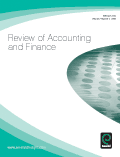
Review of Accounting and Finance
Cultivating Excellence in Economic ResearchReview of Accounting and Finance, published by EMERALD GROUP PUBLISHING LTD, is a prestigious academic journal with a longstanding commitment to advancing scholarship in the fields of accounting, finance, and economics. With an ISSN of 1475-7702 and E-ISSN of 1758-7700, this journal has established itself as a key resource for researchers, professionals, and students seeking robust empirical and theoretical insights. It enjoys a strong reputation, reflected in its 2023 Scopus rankings, where it is positioned in the top quartile for Economics and Finance, and holds a Q2 category in Accounting. The journal covers a wide range of topics, aiming to foster discussion and disseminate knowledge that bridges the gap between theory and practice. Although it does not offer open access, its comprehensive scope is invaluable for those dedicated to understanding the complexities of financial systems and accounting practices from a global perspective. Published continuously from 2002 to 2024, the Review of Accounting and Finance is an essential outlet for innovative research that drives the discipline forward.

International Review of Finance
Unveiling the complexities of finance and economics.International Review of Finance is a prestigious academic journal published by Wiley, located in the United Kingdom. With its ISSN 1369-412X and E-ISSN 1468-2443, this journal serves as an essential platform for researchers and practitioners in the fields of Economics and Finance. Ranked in the Q2 quartile for both Economics and Econometrics and Finance as of 2023, it showcases high-quality research that contributes significantly to theoretical and practical advancements. Reflecting its standing, the journal is positioned in the 61st percentile in Economics and Econometrics and the 60th percentile in Finance according to Scopus rankings. The scope of the journal includes a diverse range of topics, encouraging innovative discourse across various financial disciplines. Although it does not offer open access, the International Review of Finance continues to be an important resource for academics, professionals, and students seeking to deepen their understanding of evolving financial theories and practices.